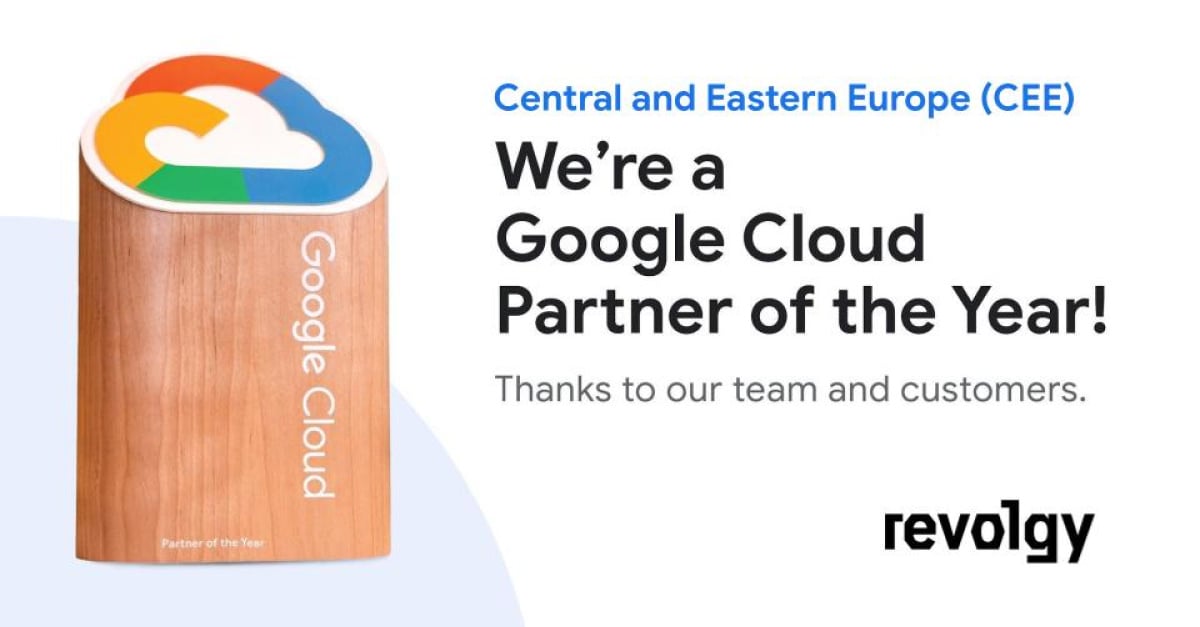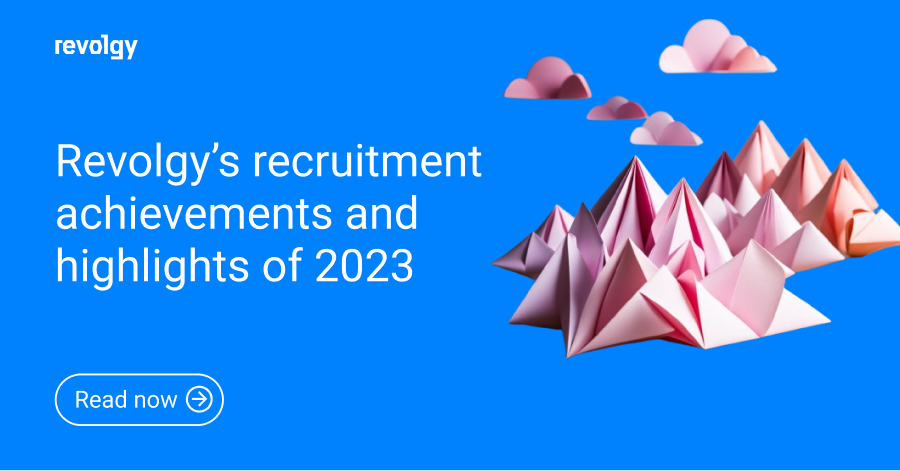Inside Revolgy
Perks and challenges of working at a remote-first company
Working from home has its perks, like the comfort of your own pajamas, petting your cat whenever you feel like it, and not having to leave the house when it’s cold outside. But as with almost anything in this world, working remotely comes with its own set of challenges.
As a remote-first company, we know a thing or two about the ups and downs of being scattered across different locations and time zones. In this article, we’ll show you how we tackle them at Revolgy.
Combining flexibility with discipline
When working from home, it’s tempting to blur the boundaries between work and personal life. Set clear work hours and stick to them as much as possible. When you’re off the clock, put your work laptop away and enjoy your free time. ⏰

Working from home undoubtedly has its benefits — like having your cat by your side all the time
While this is a good rule of thumb, sometimes you need to take care of things outside of work, like going to a barber or having piano lessons. That happens, and at Revolgy, we’ll respect your activities outside of work as long as your tasks are finished at the end of the day.
“Tuesdays, I do CrossFit during lunch, so I usually take a couple of hours off, exercise, and then grab lunch and coffee from a café nearby. Sometimes, I bring my laptop and spend the afternoon working from there.”
— Jan K., Senior Developer, Revolgy
If you regularly work from home, it’s important to create a dedicated workspace. Setting it up can make a big difference in your productivity and mental well-being.
Choose a quiet, clutter-free spot that’s well-lit and comfortable. Invest in some ergonomic furniture to prevent backaches and neck pain. And if possible, avoid working from the same space where you relax or sleep — it’s important to maintain a clear separation between work and personal life.
Get up and move around every hour or so to refresh your mind and body. Go for a quick walk, stretch, or make yourself a cup of tea. 🤸
“I practice yoga two or three times a week. Sometimes, I go during the day if I feel like I need to take a break from work. It’s no use forcing yourself to do the regular 9-to-5 if you’re being completely unproductive — it’s better to step away for a bit and come back to it later, energized.”
— Jana B., Content Marketing Specialist, Revolgy
Working from home can feel isolating, especially if you don’t have a lot of face-to-face interaction with your colleagues. Schedule regular video calls, status updates, and 1-on-1s, and take the opportunity to meet offline. These interactions will help you feel like you’re part of a community, even when you’re far away.
We might be a remote-first company, but our Prague headquarters is there for those who want to drop by, even if it’s just for a quick chat next to the coffee machine. There is no designated seating, so it’s a mix-and-match every time; that’s part of the relaxed atmosphere we cultivate at Revolgy.
Revolgians, as we like to call ourselves, are scattered around Europe and other parts of the world. Still, we keep in touch daily online and organize regular offline events like team building and kick-off sessions, pub nights, or meet at tech events worldwide. We like to foster a strong company culture that connects team members despite their distance.
Answer the calling of technology
As an IT company, tech is the basis of our work, and we get excited about exploring new solutions and features. And, to keep the wheels of remote work turning, tech is a necessity for us.
With team members located across different time zones, asynchronous communication becomes essential. At Revolgy, we utilize tools like email, chat, and shared documents and calendars to collaborate effectively without relying too much on each other’s real-time availability.
Of course, at Revolgy, we encourage everyone to use productivity apps and tools to stay organized and on top of deadlines. Don’t be afraid to experiment with different tech tools because if you find a tool that works for you, we won’t say no to setting it up for you, the team, or even the entire company.
Even the most independent remote workers need help sometimes. At Revolgy, you can always reach out to your manager, colleagues, or even the CEO when you feel stuck, overwhelmed, or need help. We love to cooperate and brainstorm together and keep a transparent working environment.
Do you want to work remotely for a company that values innovation, collaboration, and work-life balance? Join our team!
In the meantime, follow us on social media for updates and news about Revolgy. 🫶
Read next: Why (and how) we still work remotely after COVID-19



